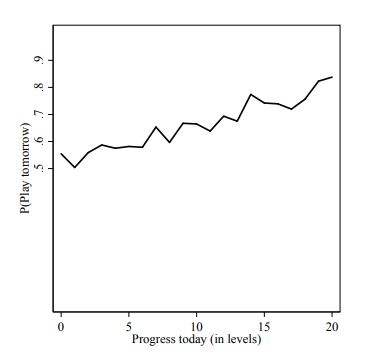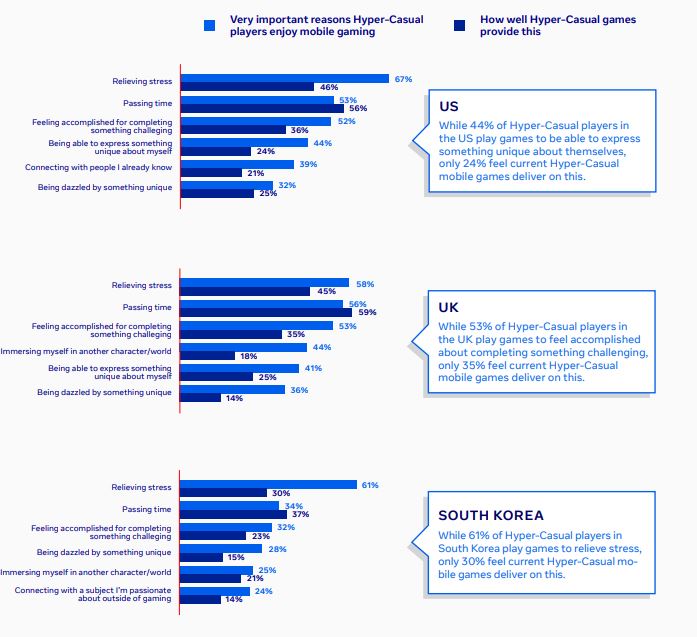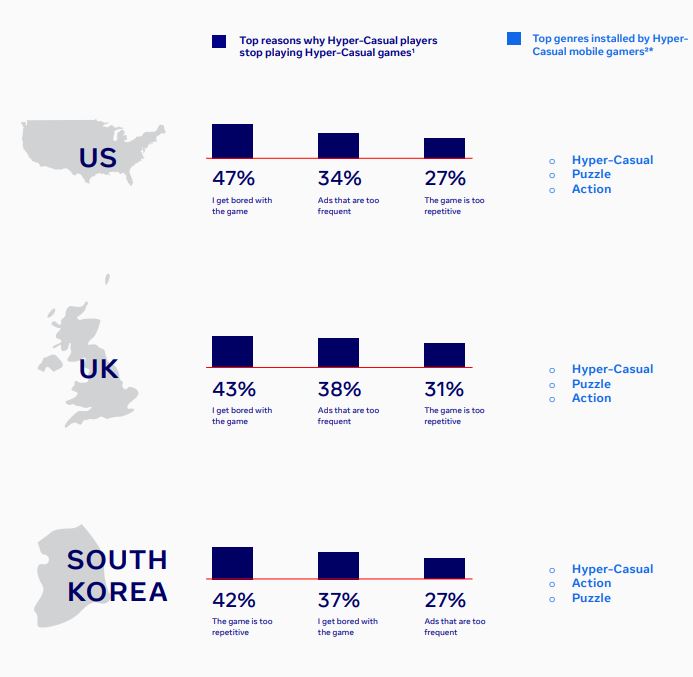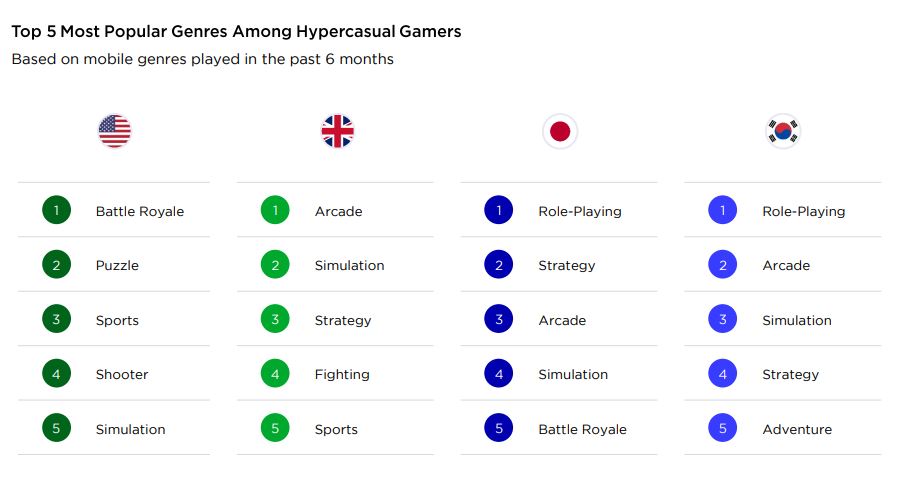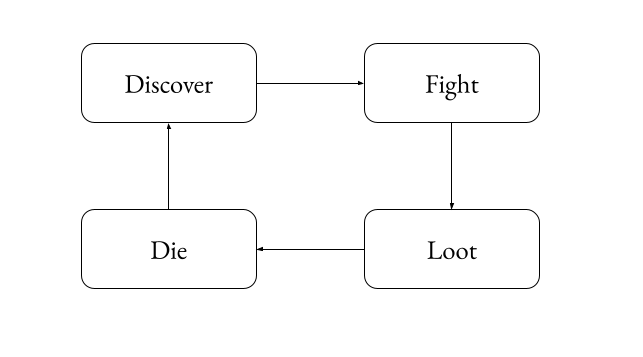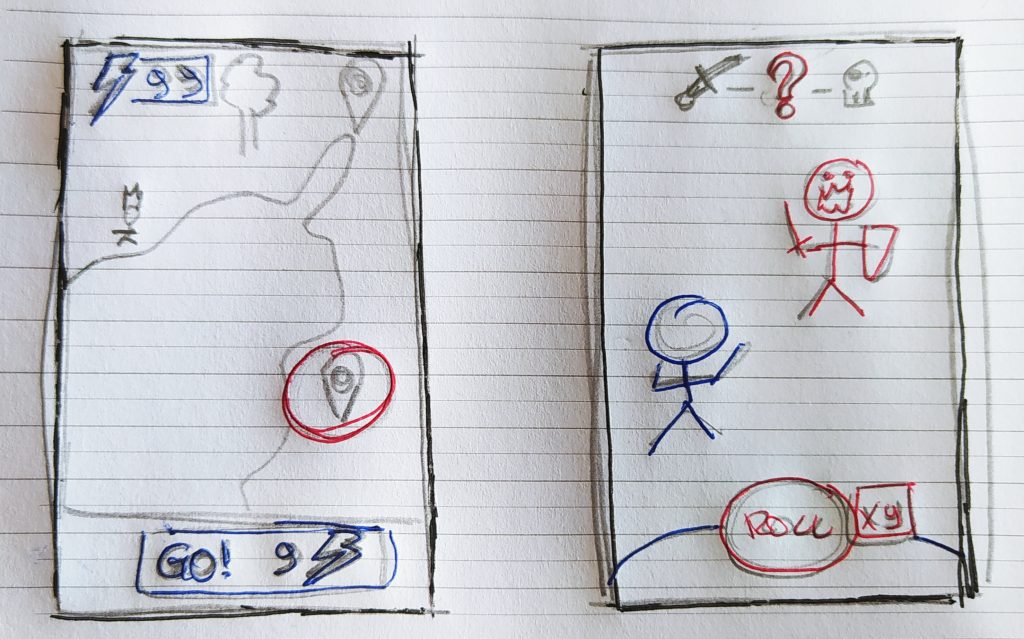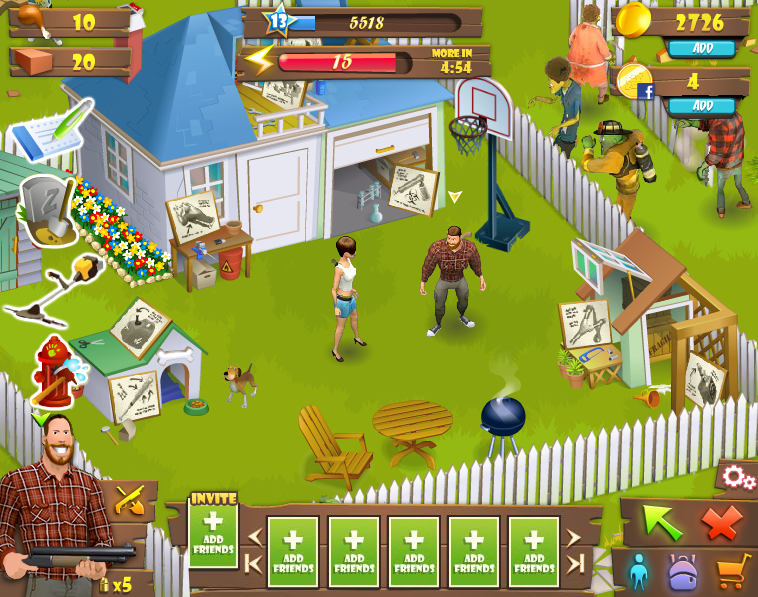I read a post from a VC firm looking for projects to fund. One of the points was “clear GTM strategy”. GTM stands for go-to-market. Experts claim that the next big company will figure a novel way of distributing games out. Distribution is part of go-to-market of course.
I am fascinated by this concept of the minimum viable audience, which is the minimum number of fans you need to serve to make your business viable.
Another concept I like a lot, better than agile IMHO, is the shape-up methodology, where you basically set up deadlines and deliver making the best you can in the fraction of time you decided.
Those would be part of my go-to-market strategy, for sure.
Innovation in mobile games
The playbook is not working anymore and Players are claiming innovation, too. For mobile games, there are elements from the world of apps that mobile games never adapted and I don’t know why.
The first is the infinite scrolling feed. Mobile games are still stuck in the world of Flash games somehow. We still use pop-ups as if we’re operating on the World Wide Web. In some cases, I spend precious minutes closing pop-ups at every session. Also, video ads have to be dismissed with the X in top right corner. It is incredibly slow and frustrating.
An infinite feed guarantees engagement and also ads and special offers can be put in it. Every game can become more streamlined, helping the Players do other things while playing.
The second element is the widgets. You know that things that are not app icons that appear on your smartphone. Why should I enter the game to see who attacked me or to collect a daily bonus?
A widget would also be a reminder that the game is there, why is nobody using it?
I think that one of the issues we have with innovation is that we are not making enough efforts to find ways of measure certain design elements and choices. Everything can be measured in certain fashion. But more often than not designers are in a company just creating content, not solving problems. The “everyone is a designer” reigns always in contexts led by product managers, and there’s nothing to do with that.
The company I dream of has that issue fixed. But, I know, I am a dreamer.
Distribution
Marketing has become not about the brand, but about the people behind it. If you see the last ad from Supercell or you read about the last successes on PC, you will clearly see that.
Is it possible to make that scalable? Probably, yes. I would start from there.
The head of marketing from Larian Studios declared that marketing is dead and everyone is angry at him. He expressed quite bad, but I understood what he wanted to say. The marketing is super important, more than ever. But the old fashion of doing marketing is gone.
